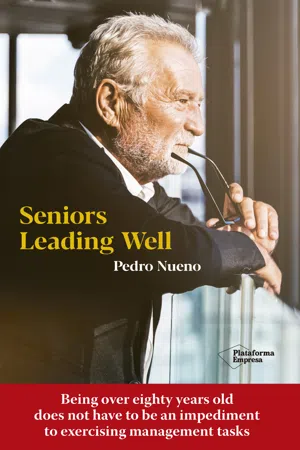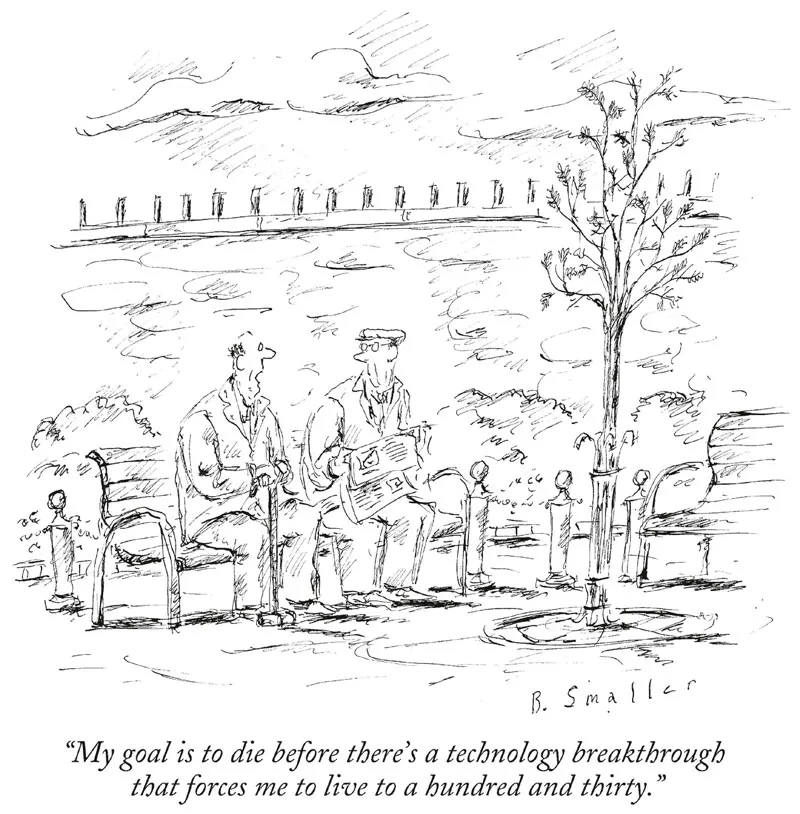1.
Teachers in their eighties and beyond
On one of the many occasions that I have visited Harvard Business School in Boston to meet with colleagues to work on projects that we have done with IESE and my school in China, CEIBS, I was walking briskly down a corridor in one of the buildings where lots of teachers have offices. Suddenly, an office door opened and a teacher walked out. He looked fixedly at me. I knew who he was because he taught me when I did my PhD there over forty years ago and I have followed him in his published works and the other academic things he has done. He said to me: “I can’t say your name, but… Spain”. He remembered that I was the Spanish PhD student from back then. He must have supervised more than a hundred thousand people since then, between students on executive study programmes, master’s and PhD candidates. How could this man, now more than eighty years old, remember a student from over forty years ago?
And I was nothing out of the ordinary. I didn’t even really advertise the fact that I was from Spain (although I did not deny it either), because at the time, Spain was under Franco’s rule and the States saw us in the same way as we see some African countries now.
Another time, I was setting up a joint programme with some Harvard professors and top teachers from IESE and some other international schools and my Harvard colleague said to me: “We must invite such and such, the Harvard professor, to this. He was pioneering in the development of this teaching.” The teacher we wanted to invite was in his eighties and the programme was also being taught in Europe. But this US professor travelled all the way to Europe, gave his lessons using the case method and deftly made his way around the classroom to approach the students who wanted to participate, noting down the relevant parts of what they said on the board, and finishing the class with a talk in which he highlighted the key points of the topic and related them to what had already been mentioned in the context of the case. The programme participants gave him an excellent rating. His age did not even enter into the equation.
Some years ago, I was sent a letter by a man whom I did not know, a certain Andrew Towl. He told me that he had seen that I was organising some programmes with Harvard Business School and that if I wanted to be successful, I should use the case method. At IESE, as in all top business management schools, the case method (the discussion of real-life cases of companies that need their managers to make decisions and implement action plans for successful growth) is used a great deal. I replied to Mr Towl explaining that I had always done so and sent him some of the cases that I was using at the time. He responded a short time later, telling me that I was doing the right thing but also giving me some suggestions on how I could improve the cases. I was curious to find out who this Mr Towl was and decided to find out about him: I learned that he had been a professor at Harvard Business School who was put in charge of case production. After World War II, he had promoted the use of the case method internationally and distributed many of the cases prepared by Harvard professors.
I discovered that Mr Towl was now ninety-eight years old and living in Boston. I decided to invite him to sit in on a class that I was giving at Harvard the following month to a group of chairmen and managing directors from leading Chinese companies. He accepted and, on the appointed day, appeared at the door of the classroom, very elegantly dressed, and told me that he would love to sit in on a case discussion with those executives. I ushered him in and, at the start of the class, introduced him to the participants. One asked if he could have his picture taken with Mr Towl. I agreed, but then the entire class jumped in to have their picture taken with him too. The class started ten minutes late but the discussion of the case was all the better for Mr Towl’s presence.
I noticed that Mr Towl was enjoying himself and that, after the class, he made a lot of comments. As it was lunch time, I asked if he would like to eat with us. He explained that he was a “very frugal” eater but that he would love to join us. Surrounded by senior Chinese executives in one of the dining halls on the campus of Harvard Business School, Mr Towl was clearly in his element. He asked me if he could also sit in on the next class, at the end of which he made a positive comment. After class, I asked if he wanted me to call him a taxi home but he said: “There’s no need. I drove here in my car.” Ninety-eight-years old, up to date with the case method, frugal, stirring up Chinese executives, reacting positively to the discussion of a case, keenly following what “his school”, Harvard Business School, was up to, and willing to selflessly lend a hand. Andrew Towl passed away at the age of one hundred and one, leaving as his legacy to Harvard Business School the Andrew R. Towl Fund for the development and use of teaching materials and methods derived from field-based research. But it was clear to me that, at the ripe old age of one hundred, he still got excited about “his school”, about discussing cases in classes and about possible ways to improve it all.
2. Fit beyond eighty
Training in business administration is my field but my career has put me in contact with many people in their eighties who are leaders in their area, often internationally.
On 27 April 2014, the Chinese Government acknowledged ten ‘international experts’ whom it considered to have made a significant contribution to the development of education in China with an award known as the Outstanding Contribution Award. I was among the winners, but the person who stood out for me was Isabel Crook, regarded as the best English teacher in China. Born to Canadian parents living in China, she was raised there but spoke English at home. Mrs Crook decided that she would teach English in China. Her family saw China’s growth and progress in a positive light and they knew that lots of people there would want to speak English in the future. Isabel Crook left a great many people satisfied with her English teaching and became a renowned teacher, most likely teaching English to senior figures before she won the award. Of the ten winners, five of us attended the event in Beijing, including Mrs Crook and myself.
The event was held in a large state auditorium that was full to bursting. The winners sat in the front row and I was able to converse with Mrs Crook. She was about to turn one hundred, but was in peak physical and mental form. She nimbly climbed on stage to collect her award, said a few words to great applause and stepped off with the same gusto. The following year, now aged one hundred, she published an excellent book.
As I was interested in the idea of a longer life expectancy in good physical and mental health, the experiences of Isabel Crook and Andrew Towl led me to explore whether these instances of reaching the age of one hundred in peak condition were really so extraordinary. Fortunately for us, reaching or surpassing the age of one hundred often gets attention, so the media dedicates space to this sort of news. We find people in a broad range of activities.
Ms Carmen Herrera, born on 31 May 1915 in Havana, Cuba, achieved wide acclaim as a painter in London, Paris and New York, where her works were shown in many exhibitions. But at the age of one hundred her painting activity was still developing at top speed. Her grandfather was Spanish. Her father had founded a newspaper in Cuba that was shut down by Fidel Castro. Cardinal Herrera Oria was her uncle. If her father attempted to launch a newspaper, it would be banned. She eventually moved to Manhattan. But the remarkable thing is that she achieved peak success after reaching the age of eighty. The idea of leaving 1940s Cuba and going out into the world to learn and triumph in the art of painting and to continue in full swing at the ripe old age of one hundred in 2015 is admirable indeed. Carmen Herrera was self-disciplined and demanded of herself that she keep up to date, interact with other artists and continue to put on successful shows. Her attitude was much praised within her circles.
Valeria Barajuen died in 2013 at the age of one hundred and five. Barajuen was a cloistered nun from the age of eighteen until her death. She had visited Pope Benedict XVI. At her convent she was known for her busy nature, her good sense of humour and her joyful disposition, which she would often record in her comments. The renowned journalist Jesús García decided to include her story in the publication of a book. It appears that she was known as Sor Teresita. The journalist titled the book “What’s a girl like you doing in a place like this?”. She was one hundred and three years old when it was published. Until her final days she remained very active teaching the new young nuns and even worked as the convent’s cook. This case highlights the possibility of staying healthy beyond the age of one hundred even in a very restricted environment, by keeping up initiative and holding on to our values (sacrifice, service to others, humility, modesty).
Jerome Bruner was born in 1915 and died in 2016 at the age of one hundred and one. He had been a renowned psychologist who taught at top universities, including Oxford in Europe and Harvard in the United States. He also gave classes at the Autonomous University of Madrid. He wrote many books and lectured, until his final years, in different countries with skill and generosity, collaborating with top universities. He was an innovative researcher and populariser of mental processes. He always saw psychology as a global issue. His research and contributions increased after publishing his autobiography, entitled In Search of Mind, at the age of sixty-eight. In his final years, he often visited Spain, where he worked with universities in Madrid and Barcelona, developing very good relations with their teaching staff.
The Japanese doctor Shigeaki Hinohara practised until his death at the age of one hundred and six in 2017. He was a well-respected doctor and his patients cared not about his age, but about his recommendations. Among other things, he was famous for his detailed versions of ‘a healthy meal’. He also used to say this: “if a person is fit, they should carry on working.”
Roser Ferran was interviewed by Víctor Amela, Ima Sanchís and Lluís Amiguet, authors of the “La Contra” column of La Vanguardia newspaper. In the interview, she claimed that she was one hundred years old at the time (2016), born in Barcelona and now living in Madrid, and that she had run the Pirelli company during the Spanish civil war (1936-1939). The interview highlights the lucid mental state of Ferran, who recalled key things about her li...

